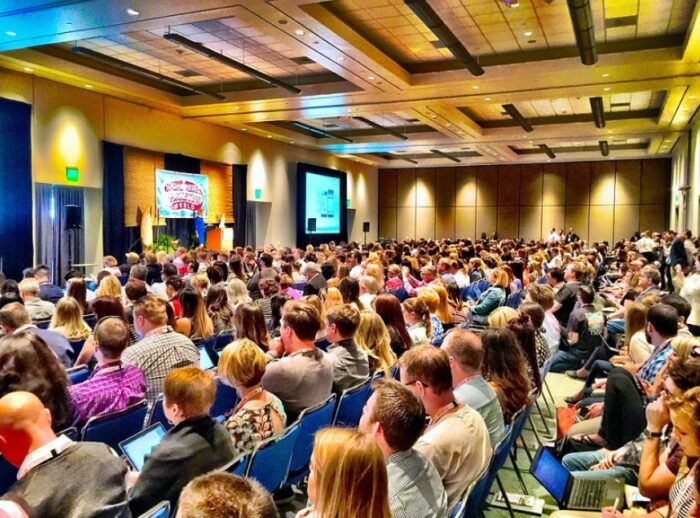
Now that the year is almost over and we can look forward to the coming year with more enthusiasm, many are inclined to plan huge events. It’s only natural to want to host a good-sized event after the previous years’ lockdowns. If you are tasked with organizing such an event and would like to make sure that everything goes as planned and you can avoid as many potential issues as possible, it’s best to know what you need to do and know what you’re up against. Whilst planning a significant event can be exciting, it still comes with a high level of responsibility. Community or school events can be an excellent way for people to come together once again, but you need to be ready to commit to hosting a truly successful event. If you want your event to be as well-planned as possible, here are the top questions you should ask yourself when planning a big community or school event.
The basics

Before you begin planning anything and focusing on the small details, develop your aims and objectives for your event first. You may want to celebrate a date or occasion, or you may want to raise enough funds for a cause. On the other hand, you may want to bring the people in your town or community (or school) closer.
Whatever your goals and objectives are, it’s vital to be ready from the start. You also need to be aware of various regulations, particularly about food hygiene and health and safety. It also pays to be reasonable and sensible, but if you are determined on doing your best, here’s the rest of what you need to consider:
1. What are the factors I should think about for my event?
Good and proper planning is essential for any event. That said, whichever event you are holding, your planning should follow a standard pattern. For instance, be as explicit as possible about the kind of event you are having and what you would like it to be, and you should also be clear about your objectives and your event’s scale and size.
It’s also a good thing to delegate – which means you should share the “burden” with other people and establish a good committee of volunteers and workers. From the beginning, figure out the permissions, licenses or bookings you may need for your event, and consider any access and safety issues you may need to address. Do you need insurance as well? It’s crucial to factor this in so you won’t be unduly surprised whilst in the middle of planning your event.
Another major factor to consider is your budget, of course, and make sure it is realistic and not too far-fetched. It is something you should discuss with your committee and agree on a sensible and logical budget. Publicity is another crucial aspect because proper publicity is key to having as many attendees as possible.
2. What would I like to achieve with my event?

Once you have decided on your goals and objectives, whether to raise enough funds for a cause, bring people together, and so on, you will have to decide what you would like to achieve with it.
For instance: who would you want to attend? What is their age group? Will you be offering different activities, and what will those activities be? Will your activities be appropriate for different age groups? How many individuals are you planning to cater for? Think about a minimum number and a maximum one. Do you have the proper facilities for this, or would you need to hire a venue? You should also consider whether you will offer free admission or not – if not, will they have to buy tickets in advance, or can they buy them at the entrance? If you offer tickets in advance, this may be a good idea because it can help you evaluate the interest level for your event and prepare for the number of attendees as well.
3. How can I delegate the work?
If your event is a big one, you’d want to create a committee so you can plan the deadlines and dates accordingly and be clear about the amount of work you each need to do (and when you should do it). Form committees for marketing and publicity, safety, security, food and beverage, entertainment, and so on, and each committee should have one or two other members.
Remember to keep and store an event overview during your committee meetings so everyone will be informed about the arrangements and correctly updated. You can also get people to be more excited (and involved) by advertising your meetings and asking for participation, thinking carefully about the location and timing of your meetings, and publicizing your event as early as possible. It’s important to keep community businesses and other organizations informed about your event as well; this encourages them to participate and speak up if they have any concerns, too.
4. What do I need to think about regarding permissions, licenses, and bookings?

Another critical aspect of any extensive event are the permissions, licenses, and bookings you may need. You would have to book your venue and confirm it as soon as possible. You should also consider the equipment you need to rent or hire – from sound systems to rides and stalls, food booths, etc, as confirmed by experienced funfair stall hire providers such as wearetricycle.co.uk. If you are providing entertainment such as bands or performers, coordinate with them regarding the length of their performance and what exactly they will do.
You also have to think about any potential access or safety issues. For one, make sure to tell attendees how they can get to your event, and give details about parking and public transport. You should also place signage on nearby roads that point to your event, and make sure your venue is wheelchair-accessible and accessible to other individuals with disabilities.
If your event is an open-air one, think carefully about the impact of fickle weather, and determine how wind, rain, or hot temperatures can affect your event. Consider providing shelter for attendees in case the sun or wind is too strong, and take the necessary steps to ensure that no cars get stuck on the premises, especially when they leave or enter the parking area.








